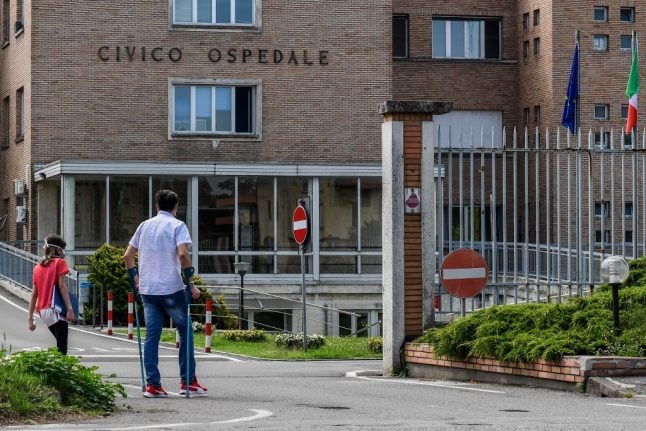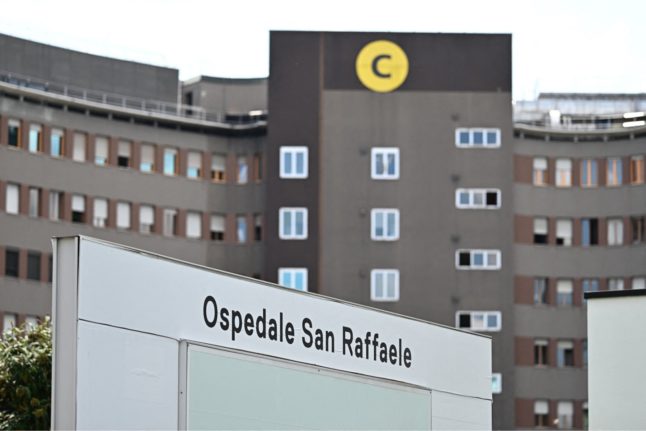
HEALTH
Coronavirus was already in Italy by December, waste water study shows
The coronavirus was already present in northern Italy in December, more than two months before the first case was detected, a national health institute study of waste water has found.
Published: 19 June 2020 10:54 CEST

The first coronavirus outbreak was reported in Codogno, Lombardy, in February - but the virus may have been circulating months earlier. Photo: AFP
Researchers discovered genetic traces of Sars-Cov-2 – as the virus is officially known – in samples of waste water collected in the northern cities of Milan and Turin at the end of last year, and in Bologna in January, the ISS institute said in a statement seen by AFP on Friday.
Italy's first known native case was discovered in mid-February.
The results “help to understand the start of the circulation of the virus in Italy,” the ISS said. They also said they “confirm the by-now consolidated international evidence” that sewer samples work as an early detection tool.
Italy was the first European country to be hit by the virus and the first in the world to impose a nationwide lockdown. Italy has now recorded over 34,500 deaths.
The first known case, other than a couple of visiting Chinese tourists in Rome, was a patient in the town of Codogno in the Lombardy region.
On February 21st the government designated Codogno a so-called “red zone” and ordered it shuttered, followed by ten other towns across Lombardy and Veneto.
By March 9th it had extended the shutdown across the country.
In February, medical experts in Milan said they believed the virus had already been “circulating unnoticed for weeks” in Italy.

ISS water quality expert Giuseppina La Rosa and her team examined 40 waste water samples from October 2019 to February 2020.
The results, confirmed in two different laboratories by two different methods, showed the presence of SARS-Cov-2 in samples taken in Milan and Turin on December 18th, 2019 and in Bologna on January 29th, 2020.
Samples from October and November 2019 were negative, showing the virus had yet to arrive, La Rosa said.
The data was in line with results obtained from retrospective analysis of samples of patients hospitalised in France, which found cases positive for SARS-CoV-2 dating back to the end of December, the institute said.
It also pointed to a recent Spanish study that found genetic traces in waste water samples collected in mid-January in Barcelona, some 40 days before the first indigenous case was discovered.
Since the beginning of the epidemic, researchers across the world have been tracing the spread of the coronavirus through waste water and sewage, finding genetic traces from Brisbane to Paris and Amsterdam.
Given the large number of coronavirus cases that have little or no symptoms, waste water testing could signal the presence of the virus even before the first cases are clinically confirmed in areas untouched by the epidemic or where it has ebbed.
The ISS said it had urged the health ministry to coordinate the collection of samples regularly in sewers and at the entrance to purification plants “as
a tool to detect and monitor the circulation of the virus in different territories at an early stage”.
It is launching a pilot study on priority sites identified in tourist resorts in July, and is expected to setup a nationwide surveillance network of waste water by autumn.
Find all of The Local's coverage of the coronavirus crisis in Italy here.
Url copied to clipboard!


 Please whitelist us to continue reading.
Please whitelist us to continue reading.
Member comments